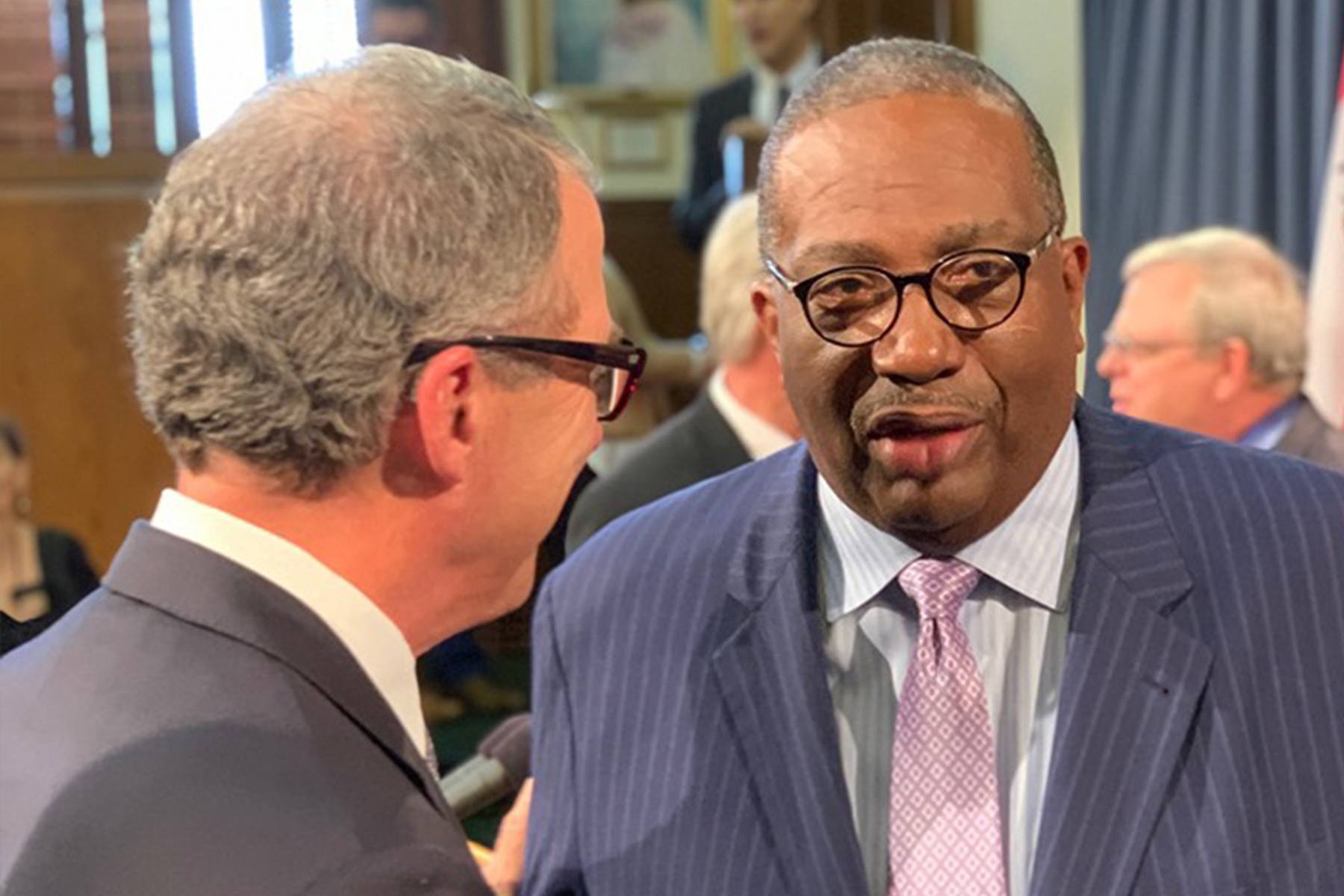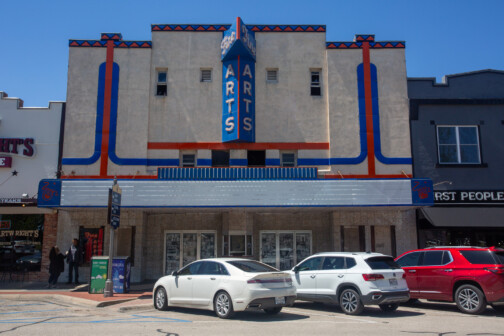Politics isn’t supposed to make sense. Royce West, a 68-year-old millionaire lawyer and 27-year incumbent officeholder, just lost the Democratic U.S. Senate nomination to MJ Hegar of the Austin suburb of Round Rock. She is a 44-year-old Purple Heart military pilot who has never held elective office.
West ran as the underdog.
What? Yes, really. When Hegar, who is White, accused West, who is Black, of making millions of dollars over the years as a lawyer for local units of government while serving as a state senator, West did not deny the loot. But he suggested obliquely that Hegar was a racist for bringing it up:
“I’m from the projects in Dallas, OK?” he said in a TV debate in Austin. “And if you’re taking a shot at me because I’ve been a successful lawyer basically providing job opportunities for people in my community, then take that shot. I have no problems with that.”
Let’s come back to the thing about providing job opportunities for members of his community in a minute. Well, no, second thought, let’s just do it now.
The best shot Royce West or anybody else in leadership in Dallas ever had at creating jobs in the employment desert of southern Dallas came in 2009 when a national warehousing and shipping company bought 5,000 acres and proposed developing the continent’s largest centrally located high-tech logistics hub.
Who knows how real the job numbers were, but the promise was 65,000 new jobs in southern Dallas. The firm, The Allen Group, is a highly respected operator all over the country. If the jobs number was inflated by 100 percent, which is very unlikely, that still would have been way more new good jobs than anyone has ever brought to southern Dallas before or since.
West was part of a group that pressured owner Richard Allen to give them an equity share in his family-owned firm. Allen complained to longtime Dallas Democratic Congresswoman Eddie Bernice Johnson that West and Dallas County Commissioner John Wiley Price were subjecting him to a shakedown. She agreed with him.
But it was all over already for Allen. Price accused him of being a racist exploiter. The Dallas Morning News editorial page backed up Price, as did the North Central Texas Council of Governments, a regional entity that hands out federal highway largesse.
At one point Allen provided me contact information for minority mayors and members of congress in other parts of the country where his firm does business, and he asked me to call them and inquire if he was racist.
I did. Not only did they say emphatically “no,” I got tired of people suggesting I was some kind of pond scum for asking. Not that I’m not pond scum. Being a reporter is sometimes a hard job for people outside the business to understand.
Richard Allen refused to give in. His vision — southern Dallas as the central pivot-point for all rail shipping on the continent — never happened. A very watered-down version is still underway without Allen’s participation.
This is not to say that West has been idle in his almost three decades in the Legislature, where he probably deserves to be known as The Great Recognizer. A quick tour of titles of Senate bills sponsored by West includes, “Recognizing Patsy Spaw for her loyalty and service to the Texas Senate,” “Recognizing Mary Matilda Factory for her contributions to the American space program and leadership in the community,” and, best of all, “Recognizing Duncanville for honoring those who lost their lives in service to their country” — a bill that essentially recognizes recognizing.
In his battle with the neophyte, Hegar, West cloaked himself in underdoggery a second time when final campaign fundraising reports before the election showed her outpacing him by 400 percent. West’s campaign told the Texas Tribune, “The Washington establishment has had their thumb on the scale against Royce West and ethnic minorities in this race.”
The Tribune said in its story that the West campaign made the claim of racial bias, “without giving specifics.” With the Tribune, you never know if they asked for specifics.
But West seemed to do well with some party leaders in Washington, including U.S. Rep. Joaquin Castro of San Antonio. Castro said in a statement, “Senator West’s experience and his long list of accomplishments for the people of Texas make him the clear choice in this race.”
Perhaps Castro was thinking of the long list of people West has recognized over the years. Undeniably, it’s good to be recognized.
Where were we? Oh, yes, we were saying that West lost anyway. That brings us to a question. If West was going to run as an underdog minority — and he did — how much loft did that line give him once he left his home turf in Dallas County? How much minority pull did he exert at the ballot box outside Dallas?
In Bexar County where Castro had endorsed him, Hegar beat him almost two-to-one, 65.84 percent to 34.16. The population of Bexar is slightly more minority than Dallas County, at about 70 percent.
West beat Hegar in Dallas County, his home turf, by a similar ratio, almost two-to-one. He lost statewide by 40,625 votes. Had he been able to reproduce his Dallas margin in Bexar, he would have racked up an additional 22,000 votes — more than half what he needed to beat her statewide.
Even half that number of additional votes in Bexar would have made a difference had West been able to shine in Houston; Harris County was the one place where he and everyone else expected him to walk away with it.
Harris has about the same ethnic/racial makeup as Dallas County but it’s twice as big — 4 million souls to our 2 million. In spite of that, only 156,034 Harris County voters voted in the Hegar/West contest, compared to 129,500 here. (Maybe we should stop taking grief for our lousy voter participation rates here and tell the vote scolds to go pick on Harris for a change.)
West did carry Harris, but by a margin of only 1 percent instead of his two-to-one ratio at home. Had he done a little bit better in Bexar and then reproduced his Dallas ratio in Harris, he would have picked up the 40,000-plus votes he needed to win.
Put another way: given that West’s go-to theme was underdog and minority, he needed to pull well in Bexar and Harris, two of the state’s biggest pools of minority and minority-sympathetic Democratic voters. He got stomped in Bexar, despite the strong endorsement by a member of the locally royal Castro clan, and he barely eked out a win in Harris.
He gave up another 12,000 of the 40,000 votes he needed to win by letting Hegar beat him by 10 points in Austin. But that’s her home turf. She’s White. Austin is the state’s Whitest big city. Maybe it’s not fair to hold losing Austin against West if we’re going to make this about race. Well, he did. I didn’t. But you see my point.
West is a poor African-American kid from the Dallas projects who has done very well for himself, and that’s not nothing. But in the age of George Floyd, COVID, and Trump, his narrative seems dated: “I’m Black. I was poor. Now I’m old and rich. I am the Great Recognizer.” That story didn’t offer him the boost he needed elsewhere. It’s not even clear why it still works here.





